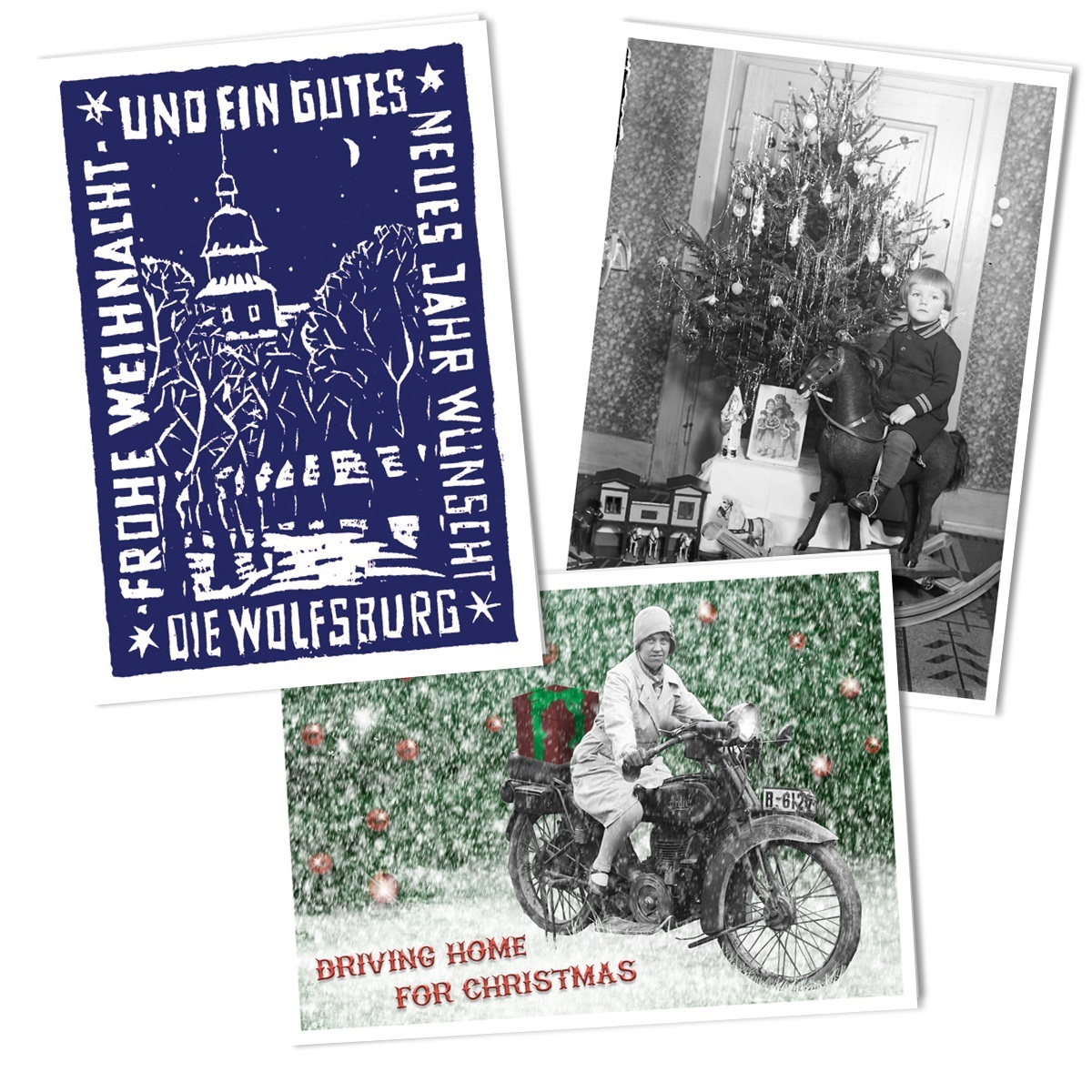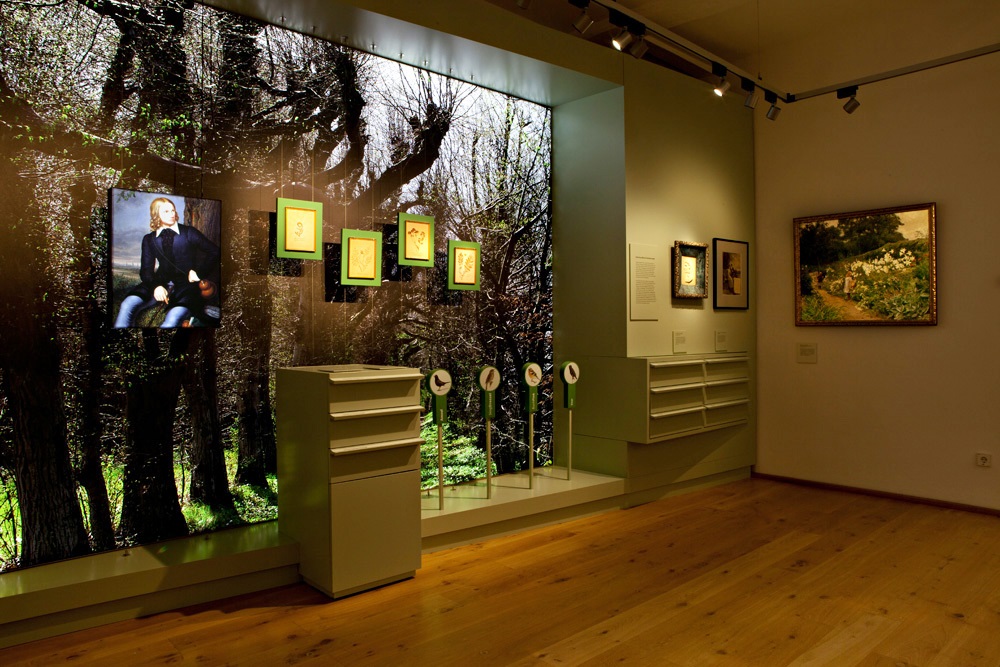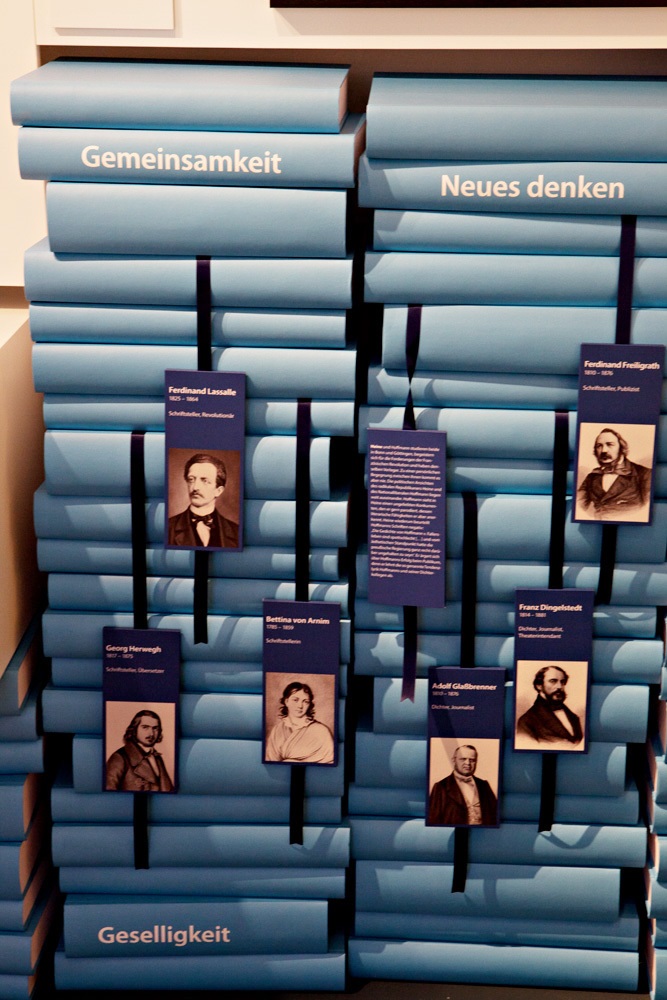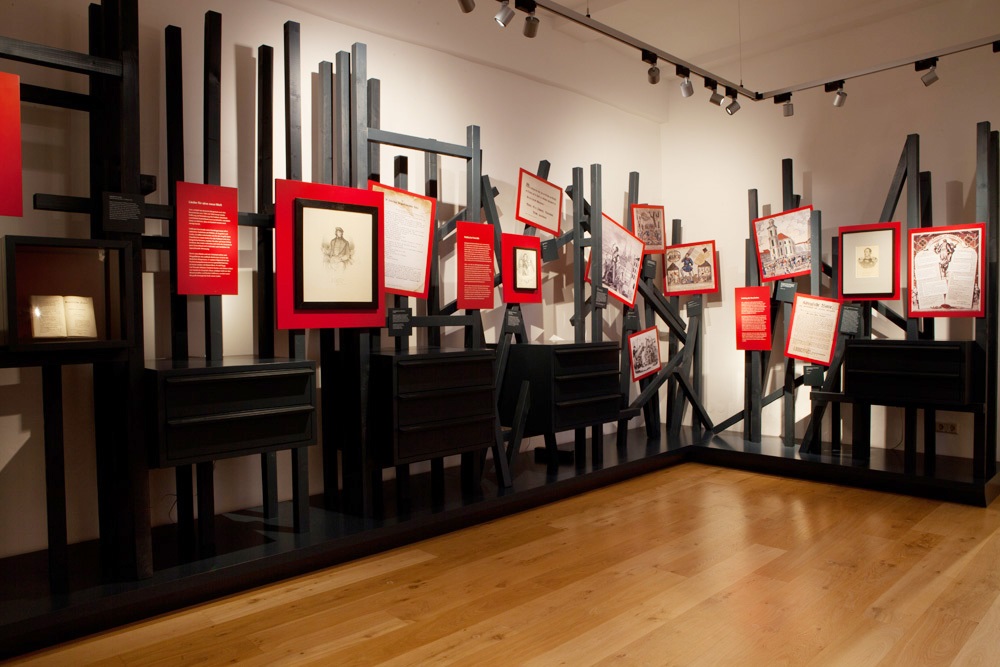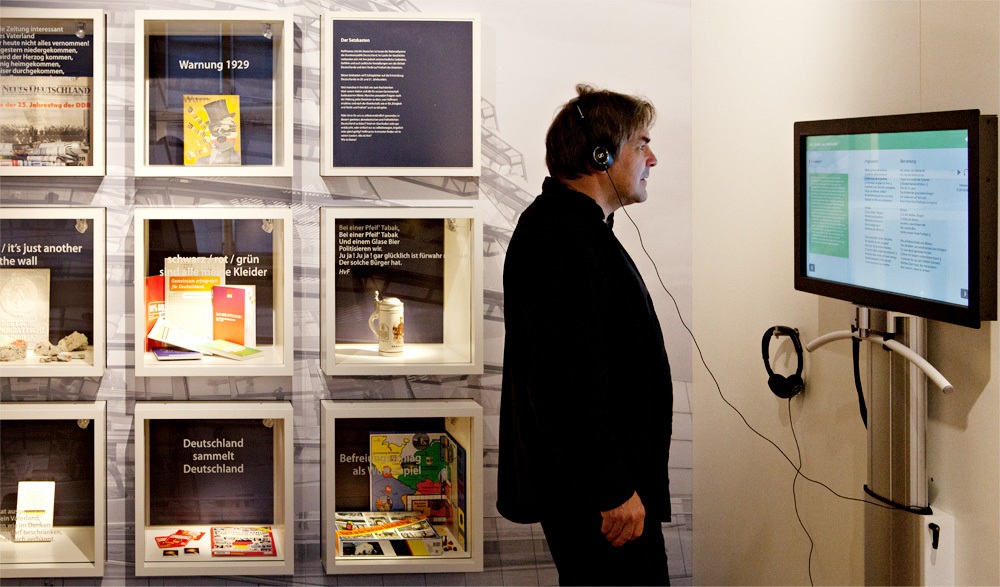Hoffmann von Fallersleben Museum in the M2K
German history, national anthem and children's songs
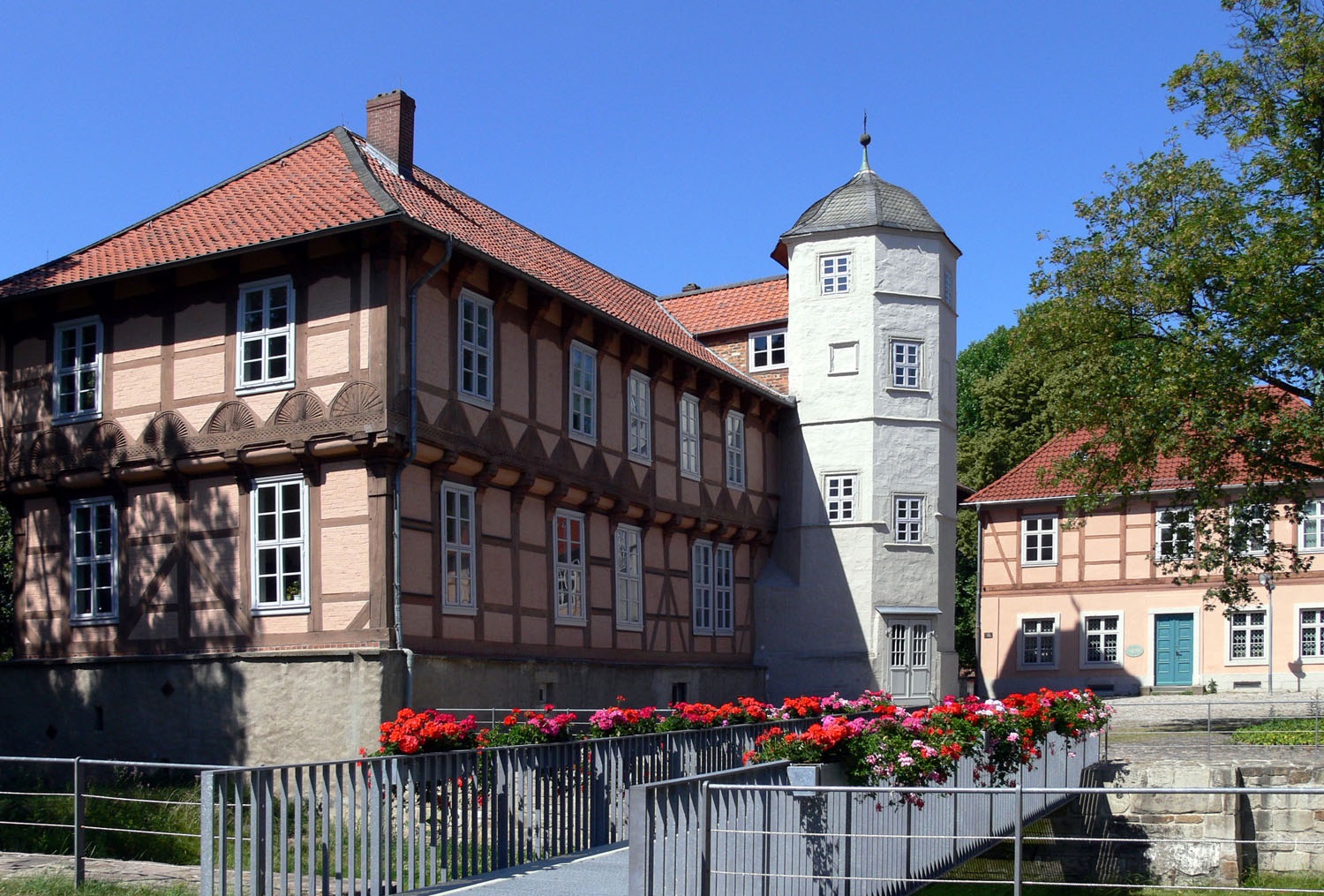
The Hoffmann von Fallersleben Museum in Fallersleben's half-timbered castle shows the completely redesigned permanent exhibition in its interior renovated and refurbished rooms. Here, visitors can encounter the poet of the German national anthem and immerse themselves in the 19th century, which was so important for German history. In the process, they get to know the little Fallersleben boy as well as the student romantically in love or the scientist often working as a detective. In an often surprising and entertaining way, they can learn more about a biography between friendships, very personal or even highly political dreams and his fight for a better and fairer world.
On the other hand, from today's perspective, the focus is on Hoffmann's work, on the special quality of his poems and songs, which are still alive in our cultural treasure today. Here, music in all its facets associated with Hoffmann plays a particularly important role. For the poet's poetry is also one of the most frequently set to music of his time.
The Hoffmann von Fallersleben Museum caters to visitors of all ages and their various needs. Everywhere, visitors can sit and browse through books or, even more comfortably, enjoy Hoffmann's experiences at listening stations. At multimedia, karaoke and game stations, visitors are encouraged to interact. For children, to whom Hoffmann dedicated some 500 poems and songs, there is a special offer that arouses curiosity about the creative and pugnacious poet and songwriter from Fallersleben, who was very open to life. Thus the museum presents itself today and in the future as an attractive place of experience for the people of Wolfsburg and guests of the city.
The Hoffmann von Fallersleben Museum bears the quality seal of the Museum Association for Lower Saxony and Bremen.
-
Hoffmann biography
Writer and literary researcher, poet of the national anthem "Deutschlandlied" (1841 on Helgoland) and hundreds of children's songs; born: April 2, 1798 in Fallersleben (today a district of Wolfsburg); died: January 19, 1874 Corvey Castle (Höxter).
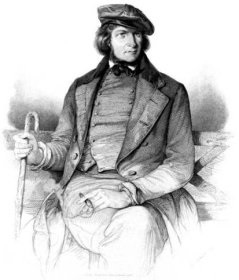
Hoffmann biography
The main motif of Hoffmann's political-satirical poetry is the struggle for a united and free Germany. His linguistically mostly catchy political songs, often combined with popular melodies, had - above all the Deutschlandlied - a wide circulation and popularity in their time of origin.
In the aftermath of the publication of his "Unpolitische Lieder") (2 volumes 1840/41), the professor of German literature and language (Breslau, since 1830) lost his post. For a long time he is considered politically dangerous and has the right of residence only in some German countries.
His great merits for the rediscovery and edition of German language monuments (e.g. "Ludwigslied") and Dutch studies became known only recently.
Musicological research in recent years has also uncovered Hoffmann as one of the most frequently set poets of the 19th century. Many of his children's songs are still very common today (e.g. "Alle Vögel sind schon da", "Der Kuckuck und der Esel", "Morgen kommt der Weihnachtsmann").
The city of Wolfsburg keeps the memory of August Heinrich Hoffmann's life and work alive in the Hoffmann von Fallersleben Museum in Fallersleben Castle.The museum's work is supported by the Hoffmann-von-Fallersleben Society, which maintains a large archive and study center in an annex of Fallersleben Castle and awards the Hoffmann-von-Fallersleben Prize for Contemporary Literature every two years.
-
Museum as an extracurricular place of learning
Discover Wolfsburg's exciting history(s) - Wolfsburg's historical museums as extracurricular places of learning and experience.
-
Hoffmann von Fallersleben Society
The Hoffmann von Fallersleben Society is a research center and an extracurricular place of learning.
-
Museum store
Books, greeting cards, CDs and more in the museum store
